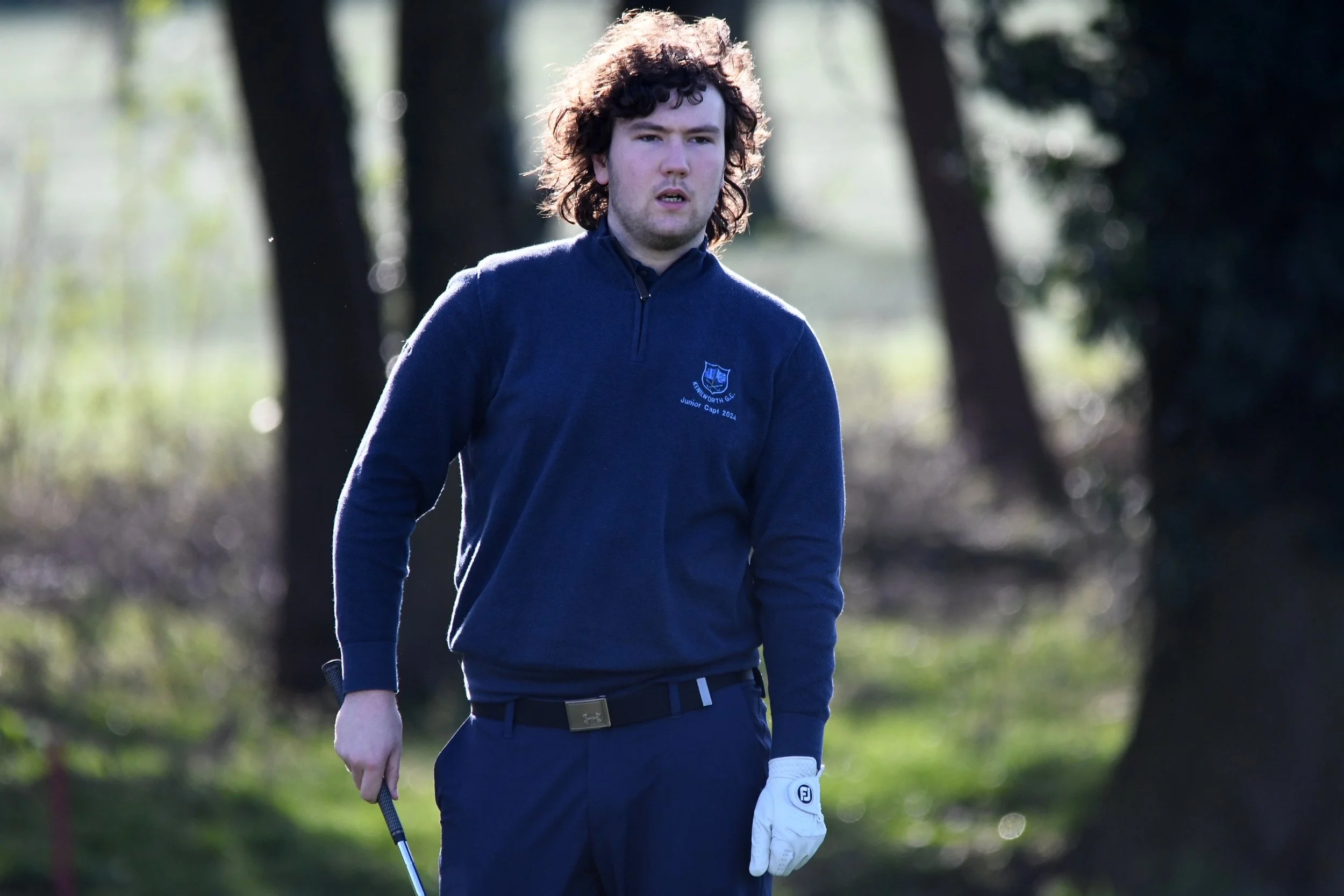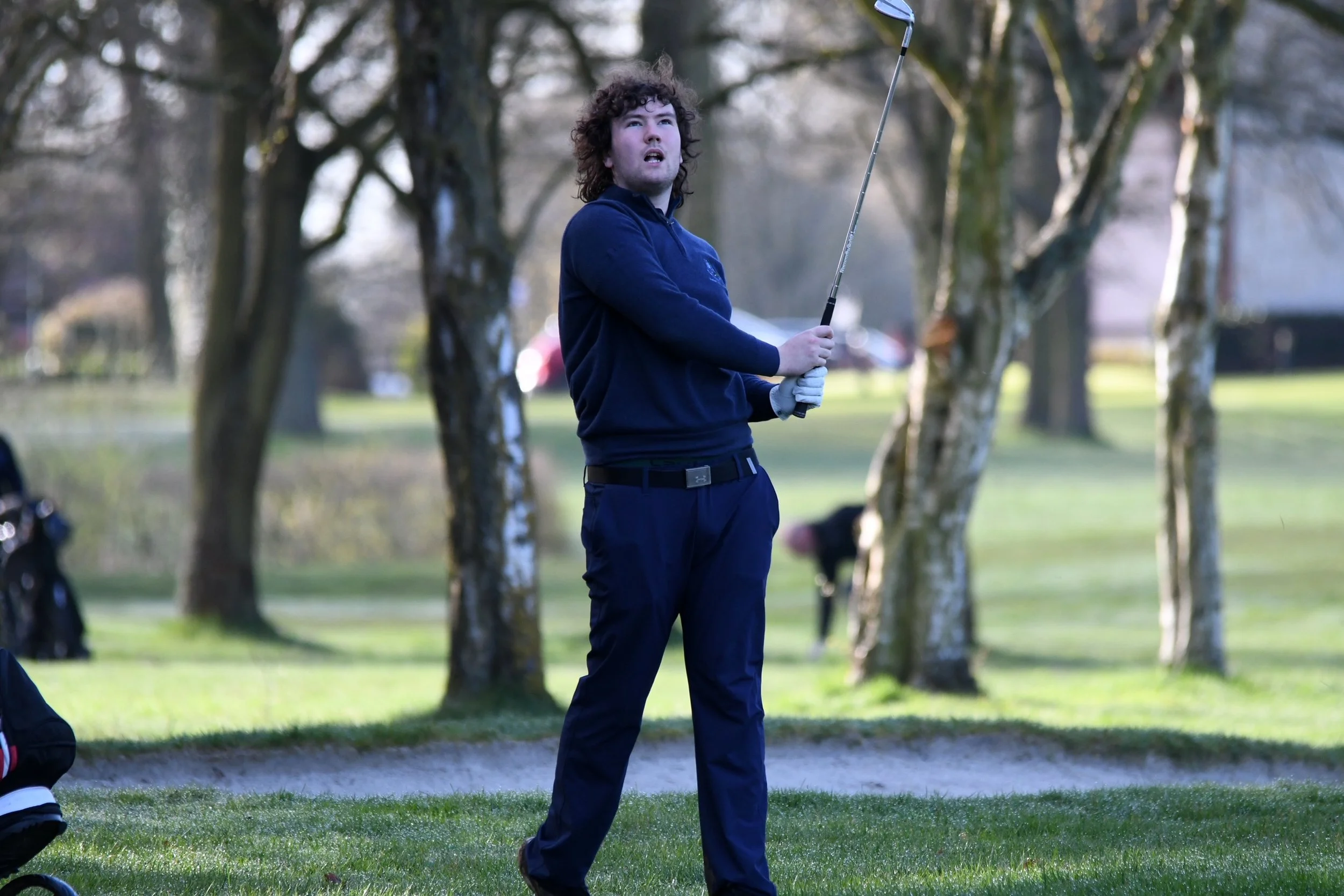George Cornall: From walking off the golf course to tackling the PGA Foundation Degree
He used to withdraw from sports as a youngster, and didn’t complete 18 holes before the age of 15.
With auditory sensory processing issues leading to mental overload and anxiety, George Cornall was late-diagnosed autistic and his challenges with learning were often misunderstood by teachers.
For years a solo range golfer, George eventually became Junior Captain at Kenilworth Golf Club in Warwickshire and won countless competitions at club and county level.
George is registered with the European Disabled Golf Association (EDGA) and in October 2024, he was offered a place as a PGA Trainee on the PGA Foundation Degree.
Earlier this year, George was named as a finalist for the Young Person of the Year Award at the England Golf Awards.
The hope is that George can inspire other youngsters with similar challenges. Here, he described his journey so far.
Obstacles to doing sport in and out of school
Country-wide limitations mean a lot of young people like myself don’t receive diagnosis of impactful mental health conditions until it’s too late.
From a young age, my behaviour was misunderstood as disobedience and even at 14 when I eventually had a label, it seemed autism was poorly understood.
In sport, coaching lacked the flexibility to accommodate people like myself.
My parents saw my potential in sport, but some private coaches refused to teach me, saying I didn’t listen. To follow complex instructions in noisy environments was near impossible.
Interpreting social interactions in groups was worse and brought a lot of anxiety. I became a non-participator.
My dad encouraged me to take up golf. After a year, I was selected for the County Futures programme, but I only attended a couple of sessions.
I violently objected to the anxiety it caused, so I dropped out. I found it impossible to accept invitations to play, though I tried.
There were some sympathetic people amongst other juniors and junior organisers but again, autism wasn’t understood. People think you are ‘nervous’ and should ‘be brave’.
If you walk off the course it’s ‘bad’, but it wasn’t that simple. Eventually, people steer clear and forget about you, but I carried on trying and when I was 15, I made a breakthrough.
The excitement of being chosen as a finalist for an England Golf Award
It came as a surprise. I didn’t know I’d been nominated until an email from the blue to say I’d been selected as one of three finalists for the Young Person of the Year Award, by a panel of over 50 judges.
It was a warm feeling and nice to get recognition for my journey. The England Golf awards are all about inclusivity and promoting golf. My struggle had made me an unofficial ambassador and a beacon for others.
Tackling the PGA Foundation Degree
It’s going quite well. I passed the first year exams, four assignments and Level 1 Coaching. It was rigorous but what I learned was interesting and I've applied it to my own golf.
The course covered sports science, business studies, golf coaching, and the Rules of Golf.
Playing golf while completing a degree
If you're a PGA Assistant and becoming a Professional, you feel like a competent golfer, and that translates to playing on the course. When you play with other professionals, you play better.
Working at a golf club is great because you can practise. When you enter Assistant Pro tournaments, everyone feels relatable. We all get along well.
I can't really say I've had a bad experience in any competitions.
Everyone's respectful, as we're all in the same boat. I’ve just started a university course, some are two or three years in. You all want to help each other.
The most interesting parts of the degree
Most of it! If you're a golfer and you're studying golf, that's a real positive. You can enjoy the work, and it's not too draining.
I enjoyed the club fitting a lot. We went into depth about that. For the assignment on club fitting, I wrote about 3000 words, and the assignment only needed 2000!
Coaching is probably the biggest part of the course and I’m looking forward to more coaching experience - I’m hoping my insights can help others avoid the barriers that I faced.
It would be nice to promote the benefits of golf to young people.



